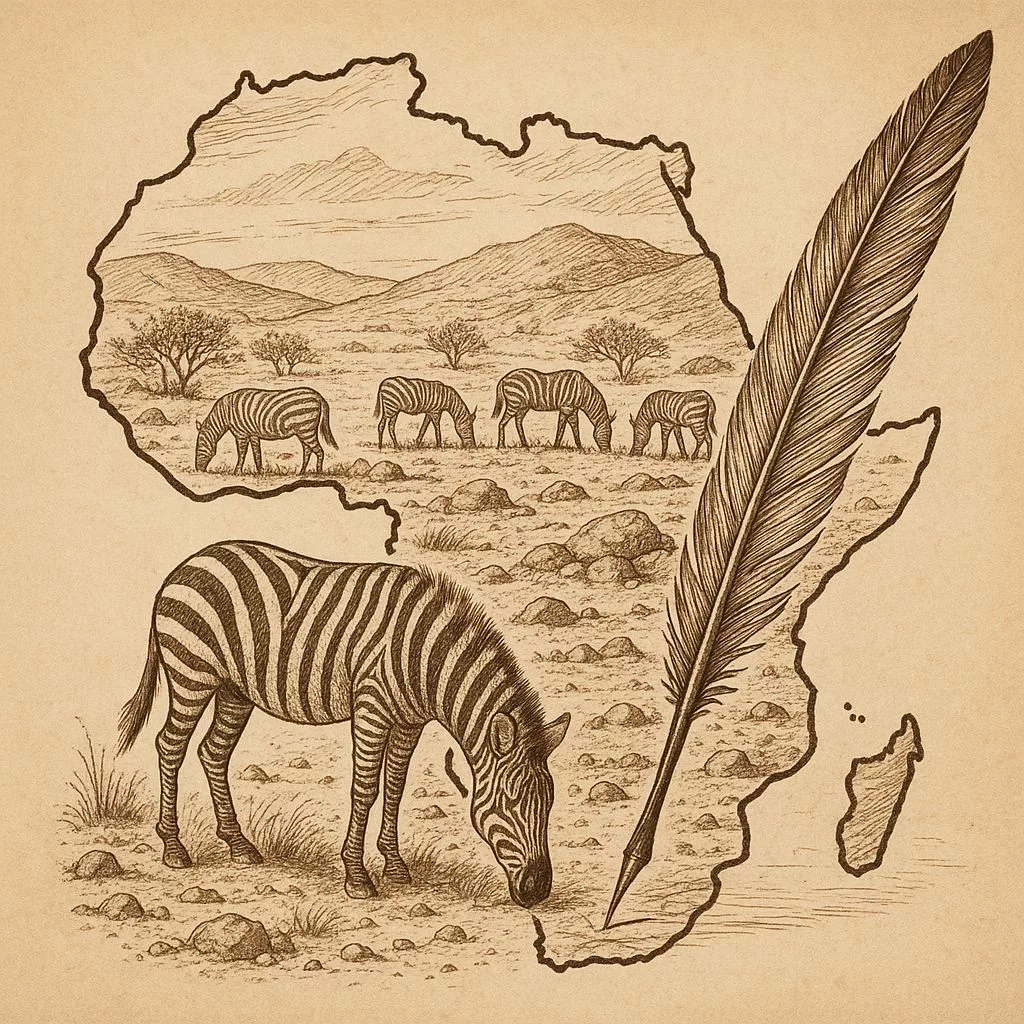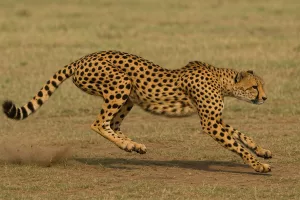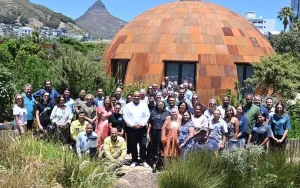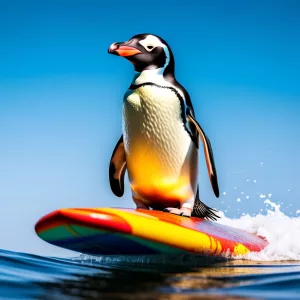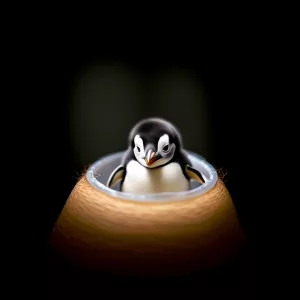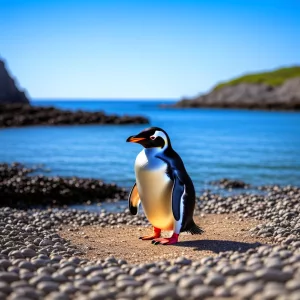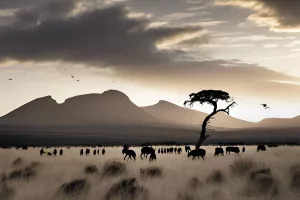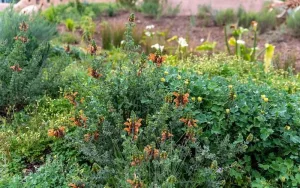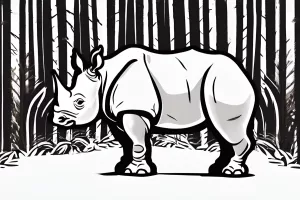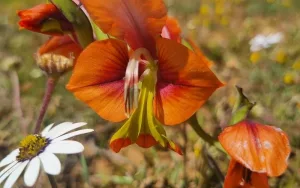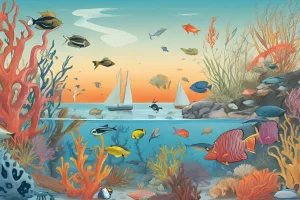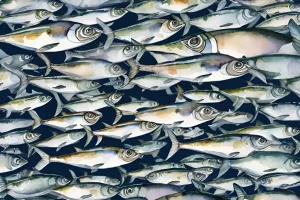Woohoo! Almost 50,000 hectares of wild land in the Succulent Karoo just got a huge Christmas present! This amazing gift created brand new nature reserves and made old ones even bigger. It’s like magic, completing a superlong zebra pathway and keeping Ladismith’s water flowing. Plus, it’s a safe home for many special plants and animals, some of them super rare and found nowhere else on Earth!
The cheetah is a superfast animal, built like a finely tuned race car. It has a bendy spine for big pushes, claws for amazing grip, and a long tail to steer itself. Its body is so special that it gets hot super fast, so it has to stop running often to cool down. This makes it a great sprinter but not a longdistance runner. Even its tear marks help it see better, and its chirps are like secret messages. Now, people are working hard to save these amazing animals, using their special features to help them survive and even teach us new things.
Green Point Park in Cape Town is now a living classroom, showcasing amazing environmental projects. They use smart screens showing city data like otter sightings and stream flow, turning numbers into colors you can feel. They even did a ‘health check’ on a single liter of tap water, showing how clean it is thanks to everyone’s help. Projects like planting native gardens and using AI to manage baboons are making a real difference. It’s a place where science, nature, and community come together to protect our planet.
Along Cape Town’s Atlantic coast, people and wildlife live side by side with kindness and care. Surfers and locals watch African penguins from a distance, help clean the beaches, and support groups working to protect endangered animals. One magical morning, a curious penguin even hopped onto surfers’ boards, showing a gentle bond between humans and nature. This special connection reminds everyone that protecting Cape Town’s wild coast is a shared job, filled with wonder and hope for the future.
The Pamela Isdell Seabird Nursery in Cape Town is a special place that saves and cares for endangered African penguin chicks. It can now help twice as many birds, giving them a safe space to grow and recover from dangers like oil spills and loss of food. Caring hands use science and love to feed and protect these little penguins, hoping they can return to the wild strong and healthy. This nursery is a bright hope for the future of African penguins and shows how people working together can make a big difference.
In South Africa, a new agreement aims to save the African Penguin, the only penguin species on the continent, from extinction. This plan involves the government, conservation groups, and the fishing industry working together to stop overfishing near the penguins’ breeding areas, giving them a better chance to find food. With their population down by 97%, these charming birds now have fewer than 11,000 breeding pairs left. Local communities are also getting involved, helping to protect these beloved creatures while supporting tourism. Together, everyone hopes to see the African Penguin thrive once more in its natural home.
A historic agreement has been made to protect the endangered African Penguin from extinction by limiting fishing around six important breeding islands. This deal, reached through cooperation among the government, conservation groups, and the fishing industry, aims to ensure the penguins have enough food to survive. Once a common sight along Africa’s coast, their numbers have dropped drastically due to overfishing. This landmark effort shows that people can work together to balance nature and industry, giving hope for a brighter future for these charming birds.
South Africa’s National Gardens Week, happening from March 10 to March 16, 2025, is a vibrant celebration of the country’s stunning nature. Organized by the South African National Biodiversity Institute (SANBI), it offers free entry to beautiful botanical and zoological gardens, inviting everyone to explore and appreciate the rich variety of plants and animals. With the theme “Grow Your Joy,” this week encourages people to connect with nature through activities like yoga, guided walks, and educational programs. As visitors wander through lush landscapes, they not only find peace and joy but also learn about the importance of protecting these precious ecosystems for future generations. Join the celebration and discover the wonders of South Africa’s natural beauty!
A man in the Western Cape was sentenced to six years in prison and fined R100,000 for illegally trafficking 56 protected animals, including dangerous snakes. This case shows the serious problem of wildlife crime and how it stretches across the globe. Authorities discovered these animals at his home, highlighting his illegal activities and connections to international traffickers. Efforts are now being made to return endangered species to their home in China, emphasizing the need for teamwork in protecting our planet’s wildlife. This victory is a strong reminder that everyone must work together to stop wildlife crime and save our precious nature.
The South African National Parks Week is a celebration of the special bond between South Africans and their natural environment, offering free access to various national parks for residents over the age of 18. This year’s theme, “Own Your National Parks,” calls for every individual to protect and preserve these parks for future generations. The event highlights the invaluable natural and cultural riches within South Africa, and promotes the innovative Kruger, KirstenboschiSimangaliso Icon Status Strategy (KISS) to transform national parks into globally recognized tourist destinations and economic anchors for the nation.
The Majik Forest Renosterveld Garden is a breathtaking sanctuary in Durbanville, Cape Town, showcasing the diversity of local indigenous wildflowers and symbolizing a united pledge to conserve our natural inheritance. The garden is a result of a collaborative effort between public sectors, community groups, and artists. It serves as an interactive stage for the public to learn about the iconic plant species of the Greater Tygerberg Hills and promotes the use of native species in conservation efforts. The garden is a harmonious narrative of coexistence between nature, art, and community collaboration, paying tribute to South Africa’s rich biodiversity and natural beauty.
Table Mountain National Park (TMNP) is taking strong steps to keep visitors safe while they enjoy its breathtaking views. Following recent concerns about safety, especially after the tragic loss of a young hiker, SANParks teamed up with local police and the Cape Town community to improve security. Thanks to their combined efforts and the use of new technology, crime in the park has dropped significantly. With a focus on community involvement and advanced safety measures, TMNP aims to protect its beautiful wilderness while making sure everyone can explore it safely.
World Ranger Day, celebrated on July 31, is a day to honor the brave men and women who protect and preserve our natural environment. This year’s theme, “30 by 30”, calls for a conservation target of 30% of protected areas by 2030. Rangers play a vital role in this drive towards a sustainable future and are champions of environmental preservation. The celebration is also an opportunity to remember those rangers who have tragically died in the line of duty and to acknowledge the challenges faced by those who continue to protect our natural inheritance.
Cape Town’s ‘No Mow’ initiative transforms public areas into a vibrant display of spring flowers and indigenous vegetation from August through November. This initiative fosters critical environmental processes and contributes to the larger ecological puzzle by creating resilient networks of varied habitats. It invites a diverse population of fauna, including birds, butterflies, moths, and bees, each adding their unique touch to this vivid scene. The initiative represents a deliberate shift towards greener and more sustainable methods, highlighting the city’s dedication to preserving its local biodiversity.
Join filmmaker and emotional ecology advocate Craig Foster on a journey to reconnect with nature in Cape Town. From diving at Windmill Beach to tracking wildlife at Cape Point Nature Reserve, experience the beauty of South Africa while keeping conservation in mind. Foster implores visitors to respect and protect the environment through activities like beach cleanups and volunteering with local conservation organizations. By appreciating and interacting with nature, we can better understand the necessity of safeguarding it for future generations.
The Sardine Run in South Africa is a breathtaking, raw display of marine life that has earned the title ‘Greatest Shoal on Earth.’ Billions of tiny silver bodies create a surge of life that lures predators such as sharks, dolphins, and orcas. However, overfishing and climate change are threatening the future of this annual spectacle, making its preservation crucial to the health and diversity of our marine ecosystems. The event’s magnitude is so colossal that it challenges human comprehension and belief, making it a wonder that deserves protection and preservation.

